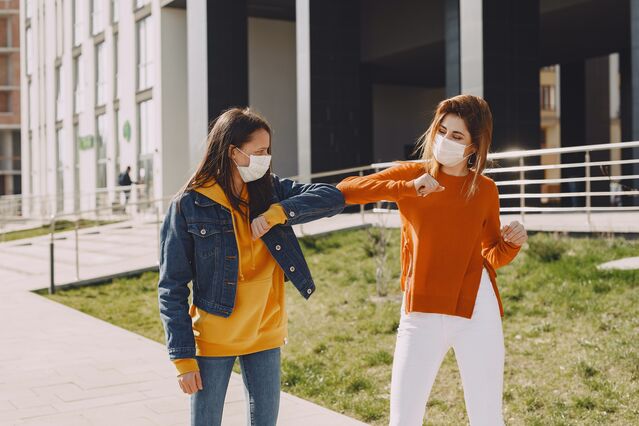Perfectionism
Could COVID-19 Be a Cure for Perfectionism in Young Adults?
Some college students may experience a decrease in anxiety during the pandemic.
Posted September 25, 2020
Headlines such as “More College Students Seem to Be Majoring in Perfectionism” are no joke. This New York Times article refers to a 2019 study that shows a 33% increase in students' perfectionism since 1989.
Current students have grown up comparing themselves to their peers on social media, leaving parents and experts concerned about their mental health. Counselors who work in college mental health hear about the pressure every day. So what happened when the high tide of perfectionism was met with a pandemic?
Spring break 2020 was a bust as students left dorms and routine to return home to complete classes remotely. Therapists and prescribers scrambled to shift care to telehealth, often across state lines.
Most assumed that perfectionists would fair poorly as COVID-19 was "one more thing" piled on to stressed-out millennials. But I logged in to Zoom each day to find many of my patients holding steady, or even doing better than they had before COVID emerged. Recent data from the Center for Collegiate Mental Health (CCMH) at Penn State support this unexpected clinical finding.

“While it has been commonly suggested that student mental health distress worsened dramatically following the COVID-19 response in March 2020, CCMH data shows that the distress of students seeking services was generally similar to the same time periods the year prior, with only slight increases in Academic and Family Distress,” reported Rebecca Janis earlier this month.
Here are three ways COVID-19 decreased anxiety for some students under my care:
1. A focus on health
Students weren’t just partying without masks; many were home following protocols to allow them to visit and care for older relatives. Although students weren’t necessarily delighted to be living in their childhood bedroom again, many had more support at home. Under-scheduled for the first time in their lives, they had more time to take care of their physical and mental health.
2. Removing the bar
While some students became more isolated and depressed, others enjoyed COVID-19 as their fall guy. Pre-COVID, they blamed themselves for less than stellar performance. Now parents and professors were telling them good enough was great. My patients who shifted their expectations were relieved, the pressure to be perfect seemed to be lifted. The bar by which they usually measured success shifted; in some cases, the bar disappeared.
3. A break from performing
Students with healthy families still mourned losses—loss of a study abroad, loss of the senior year they imagined, even job loss for themselves or their parents. But they didn’t miss out on a competitive internship from lack of the perfect resume; there were no internships to be had.
Athletes missed out on a season, but at the same time, they didn’t lose a single game. Even seasoned athletes like Serena Williams struggle with perfectionism and can over-analyze minor mistakes rather than enjoying the win. Athletes tried new sports or hobbies when they couldn't practice with their team. The exercise was fun again and not just for performance enhancement.
Final thoughts
Perfectionism has always been subjective; students didn't have one huge event to challenge their frame of reference. We all struggle to remember how we felt and went about the day before COVID-19. Life after COVID-19 will not be perfect either, but perfectionists can now imagine a world with fewer “shoulds.”


